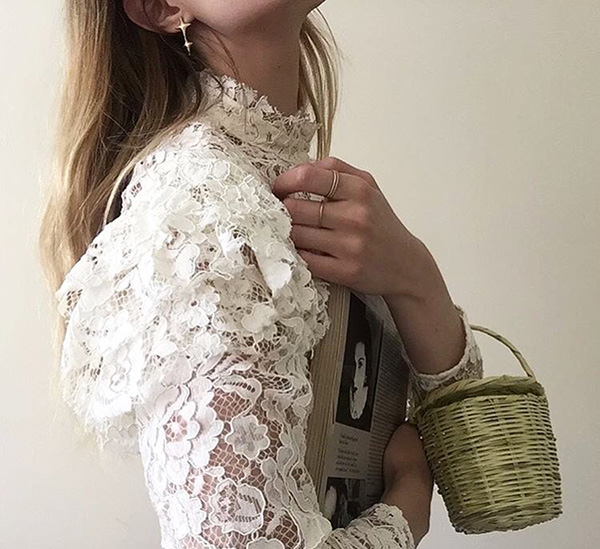The Voidz – Leave It In My Dreams
Julian Casablancas’ band the Voidz unveiled a enthralling, disco-tinged new song, “Leave It In My Dreams,” set to appear on their upcoming second LP.
The Voidz, the side project of Strokes frontman Julian Casablancas, unveiled an infectious new track, “Leave It In My Dreams.”The song is anchored by a disco-tinged groove comprised of layers of spindly guitars and keys that balance pop with deft forays into the surreal. Casablancas presides over this engrossing mix with his quintessential disaffected drawl, tossing out unexpected vocal turns as well as irresistible hooks like, “Trying to wake so early/ I get up in the morning, it just hurts.”
“Leave It In My Dreams” will appear on the Voidz’s next album, which is expected to arrive this year via Casablancas’ Cult Records and RCA. The group announced the as-yet-untitled LP last December with a Warren Fu-directed trailer packed with references to Eighties films.
Read the rest of this article at RollingStone
Kali Uchis – Tomorrow (ft. Tame Impala)
Here, in no particular order, is a selection of artists that are on Kali Uchis’ stacked debut album, ‘Isolation’. Damon Albarn of Blur fame, Tame Impala’s Kevin Parker, Odd Future rapper Tyler, The Creator, rising British R&B star Jorja Smith, and LA’s funk king Thundercat. But in amidst all of those stars, you’ll come away remembering just one name: Kali Uchis.
For the uninitiated: Uchis was born in Virginia to Colombian parents, splitting her time between both nations. Her musical journey began in 2012 with the buzzy mixtape, ‘Drunken Babble’ and was followed by 2015’s collection ‘Por Vida’. Appearances on Tyler, The Creator’s 2017 album ‘Flower Boy’, Daniel Caesar’s Grammy-nominated single ‘Get You’, and Gorillaz B-sides ‘She’s My Collar’ and ‘Ticker Tape’ further bolstered the 23-year-old’s profile – leading us to this point, her delayed, but brilliant debut album.
Read the rest of this article at NME
Biig Piig – Perdida
As Biig Piig, the 20-year-old singer Jess Smyth crafts heavy-eyed, yearning electronic R&B. On last year’s “Crush’n,” the London-based artist’s conversational vocals were guided by gentle keyboard and hip-hop beats, instrumental tools that have since become anchors of her dreamy sound. For “Perdida,” from Smyth’s forthcoming EP, Big Fan of the Sesh, Vol. 1, she adds new wrinkles to her minimalist approach, singing and rapping in Spanish and English over a crackly, jazzy backdrop.
“Perdida” finds Smyth smarting from a breakup, content to “smoke my cig and drink my wine” until the “hurting’s done.” That introspective bent sounds nonchalant in Smyth’s composed but sleepy delivery, yet it bares sharper teeth later: “I should have never let you in/I should have never let you win, huh?” Smyth sounds just as comfortable rapping in Spanish, shooting off verses that pull off a spoken-word-like rhythm over the song’s tumbling beat and deep bass. “Perdida” may be slight, but Smyth establishes a specific, smoky, after party vibe with artful subtlety.
Read the rest of this article at Pitchfork
Miya Folick – Deadbody
Miya Folick’s voice often sounds like it’s being carried over the air from far away, as though she’s singing at an observational distance from her subjects. On her latest single, though, the L.A.-based songwriter drops herself deep into the emotional grit of her lyrics. A dark and powerful piano anthem, “Deadbody” is a call for revenge against all men who hurt women.
Breaking from her usual, easy timbre, whose brassy quality calls to mind Angel Olsen or Neko Case, Folick taps into the frayed bottom edge of her vocal range on “Deadbody,” a gripping stylistic choice for a song about deep-seated, justified anger. “You poured me coke and vodka/‘Drink it, baby, be nice,’” she growls, recalling an encounter with an abuser. Then she switches to the present tense, launching commands at that abuser directly: “Don’t tell your friends that I’m lying to convince them I’m insane.” At the chorus, when the drums kick all the way in, Folick’s voice vaults up in range like she’s coming up for air for the first time in years. She sings over a militaristic snare roll, ready to go to war. And why shouldn’t she be? In a culture that stifles women’s anger, that suffocates and gaslights women even after they’ve obviously been hurt, a battle cry like “Deadbody” is a gust of fresh air. It’s a spirited tribute to putting your abuser on blast, and inviting anyone who can hear you to do the same.
Read the rest of this article at Pitchfork
Jean Grae & Quelle Chris – Gold Purple Orange
A bumping bassline builds out the backbone of “Gold Purple Orange,” the latest single from Jean Grae and the Detroit-based rapper Quelle Chris, pulled from their new album Everything’s Fine. The recently engaged couple coast on a natural chemistry bubbling with sardonic wit and steeped in an incisive, humanistic appreciation for humanity’s quirks and idiosyncrasies. Leaping from issues of racial socialization to the tired exiling of nerdy kids to self-esteem and confidence, “Gold Purple Orange” covers a lot of ground in its near six-minute runtime. At once, the instrumentation is both bouncy and ominous, with synthy organs and a reverberating sax adding bright notes to the foreboding bass. From the jump, Grae and Chris are invested in debunking a wide range of assumptions we’ve grown to accept as pathologies. Chris sarcastically drops his two cents on the divisiveness in today’s racially-politicized conversations, rhyming: ”Everybody young nigga got a deadbeat dad / Every independent lady attitude trashy.” Chris’ intonation and elongated syllables gets across the idea that he’s seriously joking even if he also seems too sad to laugh.
Grae’s long-winded second verse is teeming with a similar facetious tone even if her message is a bit more encouraging. She poetically laps one loopy line on top of another with precise enunciation. Her verse plays with the nation’s historic fascination with identity: “Identity crisis, coming later / Vices, are coming even later prices for a life lived / Without life built, for the right price guilt / ‘Cause you can be the things they say and get killed.” As urgently real as it seems, Grae still breaks off some knowledge about the relationship between struggle and an understanding of self. “With difficulty comes learning,” she begins, “where typically those exposed to less burdens / Can flourish without knowing themselves.” Grae’s verse leans into the harmful effects that privilege plays on those enveloped within it, and it’s her polish that holds attention even amidst the density of her verse. But the duo join together for the bridge, with their harmonies offering a balm for anyone sweating through their lyricism.
Read the rest of this article at Spin




